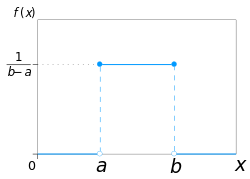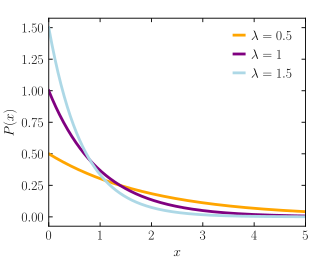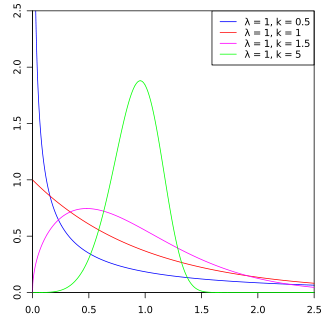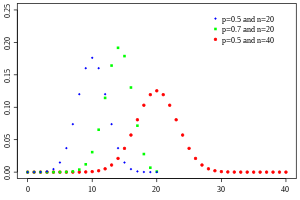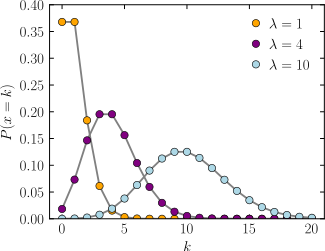| Namespace | Description |
|---|---|
algo::math::discrete |
Algorithms derived from discrete/combinatorial mathematics. |
algo::math::random_num |
Random numbers. |
algo::math::random_num::cont |
Random numbers using continuous probability distributions. |
algo::math::random_num::discr |
Random numbers using discrete probability distributions. |
algo::math::prime |
Prime numbers. |
PTriangle PascalsTriangle(const unsigned int& depth);Returns the first number of rows defined by depth of the Pascal's triangle. PTriangle is the same as
std::vector<std::vector<int>>. Each item at row and
column
is computed as the binomial coefficient
The first six rows in the Pascal's triangle are:
#include <iostream>
#include "algo.hpp"
using namespace algo::math::discrete;
usign namespace std;
...
PTriangle rows{discrete::PascalsTriangle(5)};
for (const auto& row: rows) {
for (const auto& k: row) {
cout << k << " ";
}
cout << endl;
}Output:
> 1
> 1 1
> 1 2 1
> 1 3 3 1
> 1 4 6 4 1
> 1 5 10 10 5 1
int ClockAngle(const int &h, const int &m)Reurns the angle between the hour and minute hands.
The knapsack problem is a problem in combinatorial optimization: Given a set of items, each with a weight and a value, determine the number of each item to include in a collection so that the total weight is less than or equal to a given limit and the total value is as large as possible. It derives its name from the problem faced by someone who is constrained by a fixed-size knapsack and must fill it with the most valuable items. The problem often arises in resource allocation where the decision makers have to choose from a set of non-divisible projects or tasks under a fixed budget or time constraint, respectively. Wikipedia
int Knapsack(const Items& items, unsigned capacity);Returns the maximum value that is possible to put in the knapsack without overloading the maximum capacity. The items
hold the value and capacity for each item. Items is the same as std::vector<Item> and contains
Item{int value, weight}.
#include "algo.hpp"
using namespace algo::math::discrete;
...
// Value, weight
Items items{{60, 10},
{100, 20},
{120, 30}};
int max_load{Knapsack(items, 50)}; // 220In mathematics, the Euclidean algorithm, or Euclid's algorithm, is an efficient method for computing the greatest common divisor (GCD) of two integers (numbers), the largest number that divides them both without a remainder. Wikipedia
With the properties of GCD, it can be used to compute the least common divisor, LCM:
The GCD and LCM functions are simple enough to be declared as constexpr lambdas:
constexpr auto GCD = [](auto a, auto b) {...};
constexpr auto LCM = [](auto a, auto b) {...};This function is also called choose
.
What the function is returning is the answer for the question "how many times can I choose
different elements from a set of
unique elements?"
It's calculated with
constexpr auto BIN = [](auto n, auto k) {...};Images below kindly borrowed from Wikipedia.
In mathematics, the sieve of Eratosthenes is an ancient algorithm for finding all prime numbers up to any given limit. Wikipedia
std::vector<T> GetPrimes(unsigned int n);Returns a list of prime numbers where the last prime number is <= n.
To verify that an integer is a prime number use this function;
bool IsPrime(T n);
